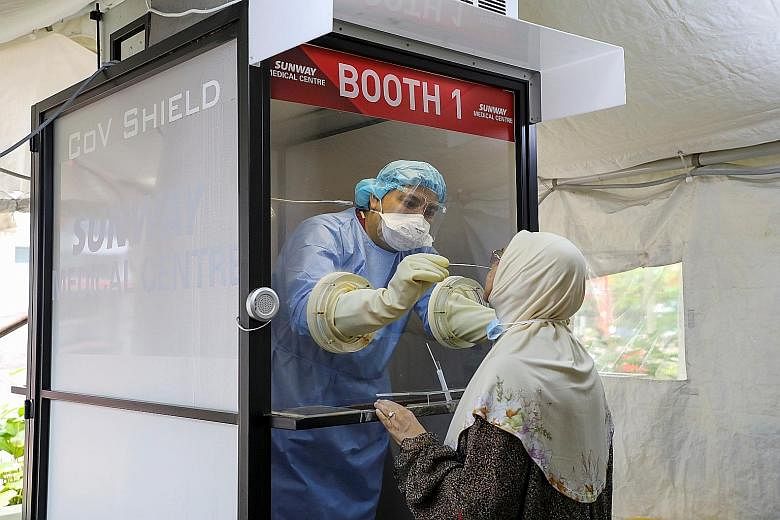PETALING JAYA • Travelling back to home towns for the Hari Raya break in May could be a reality if Malaysians continue to strictly adhere to standard operating procedures (SOP) and depending on risk assessments on the Covid-19 situation in the country, said the Health Ministry.
Factors to be considered in the risk assessments are the current daily cases, infectivity rate, intensive care unit capacity at hospitals, current Covid-19 situation involving infected health workers and the overall screening tests.
The ministry "will review all data and facts before advising or recommending to the technical committee for decisions at the special meeting of the National Security Council", it said.
In a Facebook post on Sunday, the ministry said new cases were showing "a downward trend even though (they are) inconsistent", adding that it is still too early to tell.
Health experts believe other factors should also be taken into account before allowing people to return to their home towns, a trend known as balik kampung.
"The Health Ministry's assessment did not specify the reference rate for daily cases or infectivity rate," said medical epidemiologist Malina Osman.
From a public health point of view, an acceptable rate may mean fewer cases of active and new daily cases that are within one to two digits and consistent across 14 consecutive days.
Based on previous trends of Covid-19 cases in Malaysia, Dr Malina said the country had seen SOP violations when interstate travel was allowed, which led to a spike in infections in December.
With the availability of vaccines, the government could wait for the second phase of the vaccination drive involving the vulnerable to start first before considering allowing nationwide interstate travel, she proposed.
Based on recent data from the Health Ministry, about 69 per cent of deaths related to Covid-19 were among those aged 60 and older, and 89 per cent of them had underlying health conditions, said Dr Malina.
She also urged caution as the pandemic is still a threat. "All decisions should be considered thoroughly to avoid any possibility of a fourth wave."
Referring to Health Director-General Noor Hisham Abdullah's statement that interstate travel would be allowed once 70 per cent to 80 per cent of the population is inoculated, Universiti Malaya epidemiologist Awang Bulgiba Awang Mahmud said that such a decision should be driven by evidence, and not targets.
"If we want to use evidence as the basis, then evidence of increasing immunity would be needed, like a decline in new infections as vaccination is rolled out across the country," he said.
Dr Awang was also concerned about the reduced testing of Covid-19 contacts by the ministry since January. "This means we do not really know the real extent of infections in the community."
Public health expert Zainal Ariffin Omar said interstate travel could be allowed in the near future unless Covid-19 cases came from community clusters or community events.
THE STAR/ASIA NEWS NETWORK

